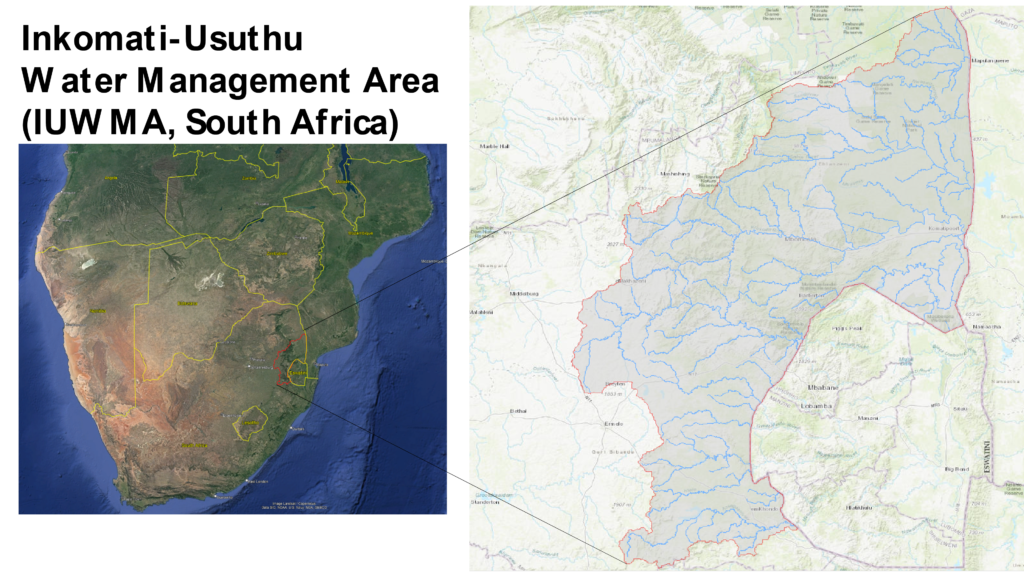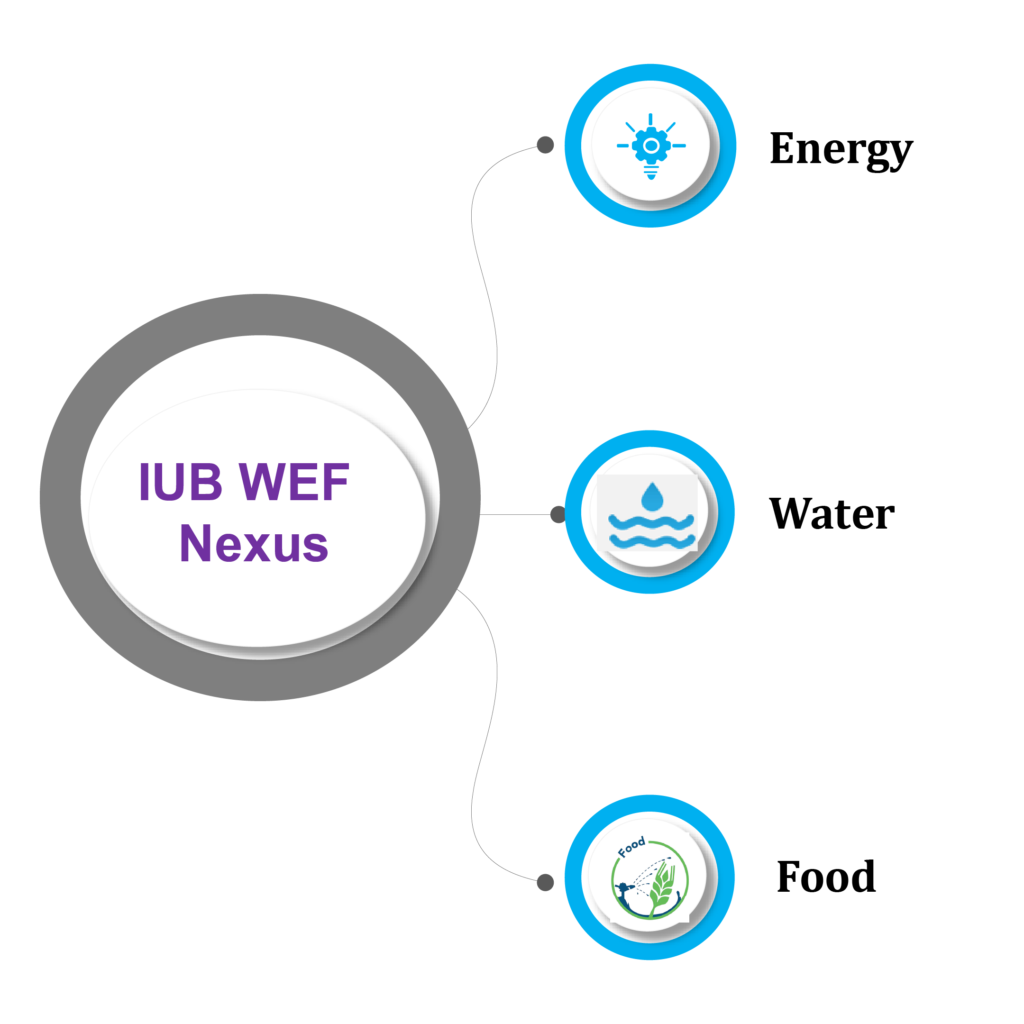Inkomati-Usuthu Water Management Area (IUWMA), Southern Africa (South Africa).

Inkomati-Usuthu Water Management Area (IUWMA), Southern Africa (South Africa).
- The catchment covers approx. 36500 km2 and accommodates at least 1,5million people
- The IUB economy is highly dependent on water, with forestry, irrigation based agriculture and eco-tourism as the main economic drivers.
- Irrigation-based agriculture and forestry provide most (60% check) of jobs in the catchment.
- Hosts and supply water to majority of the coal-based power stations in South Africa.
- The IUWMA aims to achieving equity, managing flow, managing water quality, generating and managing knowledge and achieving compliance and enforcement.
- The wide range of elevation, geology and rainfall provides a basis for a very high spatial diversity of context for water management (diversity of ecosystems, agricultural practices, socio-economic conditions and activities, etc.)
- There is a wide diversity of water users, cultures, skills, knowledge and attitudes in the catchment.

Local energy access: 94.3% (South Africa) ■ Energy demand 24,000 GWh/annum (Mpumalanga Province); Generation: Arnot power station 2352 MW; Hendrina power station 1893 MW; Komati power station 990 MW; 25 MW biomass plant ■ irrigation and power (Maguga Dam, 20 MW). 25 MW biomass plant ■ Most used energy sources are hydro, solar, generator/battery, gas, paraffin, wood and coal.
Water availability 1029 million m3/annum with deficit of 163 million m3/annum ■ Water use: irrigation (31%), ecological reserve (23%), afforestation (21%), strategic (8%), cross border (6%), domestic (5%), alien vegetation (3%), transfers (2%) and industrial (1%) (2016). .
Total irrigation potential: 509,987.5 ha.
Energy Transition Challenges
- Definition of feasible infrastructure investments optimizing WEF Water pollution by mining
- Identification of water stress causes
- To consider the water requirements of Swaziland and Mozambique and the existing international agreements
- Head availability for hydro power
- Trade-offs: land, water, employment, livelihoods, energy supply for the country
